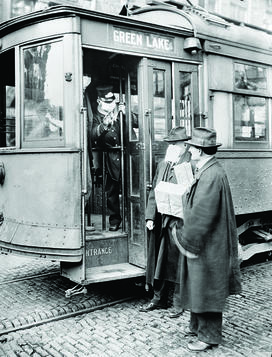Class Close-up: Looking to Pandemics Past to Plan the Future
When the COVID-19 pandemic began to rattle the globe, Professor Keith Wailoo, a historian of medicine, disease, and health care, felt as if we were “living inside our history books,” as one of his colleagues put it.

Media outlets and the public suddenly became very interested in finding out what pandemics of the past could teach us. Wailoo said he was peppered with questions like, “What are we going through right now? How does it compare to what’s happened in the past? And are there lessons from the past that we can apply to thinking about and navigating the uncertainties of COVID?”
Wailoo, who served as president of the American Association for the History of Medicine from 2020 to 2022, gave talks and interviews, including with PAW, but he also decided to “share some of that insight and wisdom from the field with students who were interested in the intersection of history and public policy.”
In the fall, 23 students took advantage by enrolling in “Making Post-Pandemic Worlds: Epidemic History and the Future,” a dual history and School of Public and International Affairs (SPIA) class.
Through twice-a-week 50-minute lectures in Robertson Hall and precepts, the course identified throughlines from the Black Death to polio to AIDS, such as challenges to globalization and misinformation.
There are “really familiar themes in the history of pandemics,” according to Wailoo. “So, one goal of the class is just to have students be … more informed about the recurring questions — like around trust and expertise, civil liberties, social inequality — that inevitably emerge after pandemics.”
“Through this class, I’ve seen that we’ve been repeating history.”— Nannette Beckley ’23
After learning the basics, students were asked to think about solutions for the present and the future.
“How do you figure out wise policy with this historical backdrop, this historical knowledge, in mind?” Wailoo asked.
For the midterm, students wrote a five-to-seven-page paper focusing on a local or national issue in pandemic policy, such as masking mandates, and how the issue relates to historical antecedents. The final consisted of a longer paper with a more international scope.
Students also were required to write weekly responses to readings such as Charles Rosenberg’s book The Cholera Years: The United States in 1832, 1849, and 1866 and Fang Fang’s 2020 writings in Wuhan Diary: Dispatches from a Quarantined City.
“I found the readings incredible. That’s probably my favorite part about the course,” said SPIA major Nannette Beckley ’23.
Beckley, who plans to pursue a master’s in public health in epidemiology after she graduates, said she has always been interested in illness and disease, but the class has taught her more about the behavioral, social, and political aspects of pandemics.
“Through this class,” she said, “I’ve seen that we’ve been repeating history.”









No responses yet